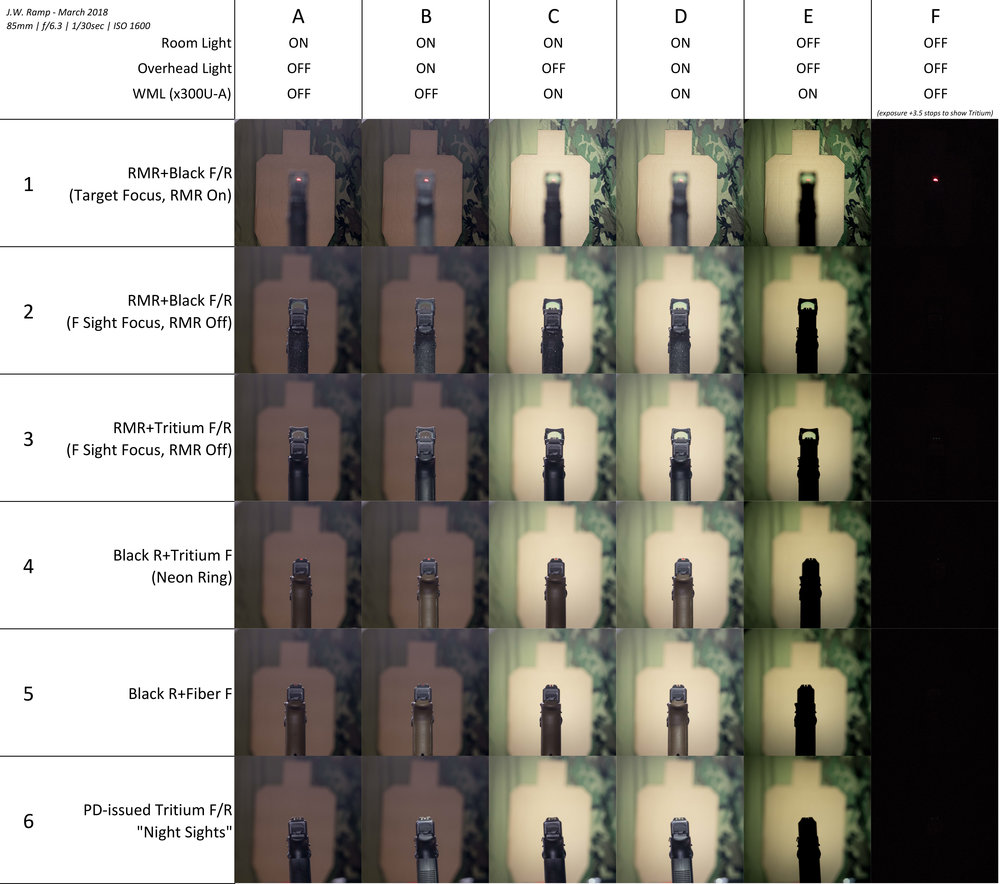By: J.W. Ramp- http://www.jwramp.com
Recently a discussion came up in the Primary & Secondary Discord chat server regarding recommended pistol sights for defensive use. The two non-red dot suggestions that seemed the most popular were Tritium-based "night sights" (either front-only or all around) and a fiber-optic front sight with blacked-out rear.
Having a handful of different sight setups on a few of my Glocks, I figured it'd be handy to compare them side-by-side in various lighting conditions in a consistent manner. While I had my own feelings going into it, I found it interesting how similar the tritium and fiber options were with blacked out rears. Granted that was just when the tritium front sight came with a day-glo orange ring around it for extra highlighting, but I had expected the narrow fiber sight to have a clear advantage in all situations other than completely dark (which may be difficult to come up with a justifiable circumstance for).
I also found the wider front sights (that cause less daylight on either side of the front sight) to be more difficult in the various lighting conditions. I much preferred a narrow front sight so it was easier to distinguish in darker, silhouetted situations.
The condition "F" images were brightened by 3.5 stops to make the tritium tubes visible - otherwise they were extremely difficult to see in the photos. I think the Trijicon HDs from setup 4 were only successful because of the bright ring around the center tube. Having to house a tritium vial brings other limitations on how narrow the front sight can be, that the fiber optic or full-blacked-out sights are not limited by.
A Surefire X300U-A with 500 lumens was mounted to all the setups and turned on for condition C, D and E. A second Surefire was bounced off the ceiling in conditions B and D. I believe the fiber optic would have been even more brightly illuminated if the shooter's position was in direct sunlight or brighter overhead lighting, but I felt this test represented reasonable indoor conditions.
My Nikon DSLR was set manually to keep photos consistent across all setups - 85mm lens at f/6.3 and exposed 1/30 sec at ISO 1600.
Here's the chart I put together for the various setups and lighting conditions - I've included galleries below of each setup and a download link to the full-resolution image at the bottom that is helpful for zooming in and seeing the sights up close. Please give me feedback on this brief test and let me know if there is similar information that might be helpful to examine in the future, whether it's rifle sights, night vision devices or other optical units. Hope you enjoy.
